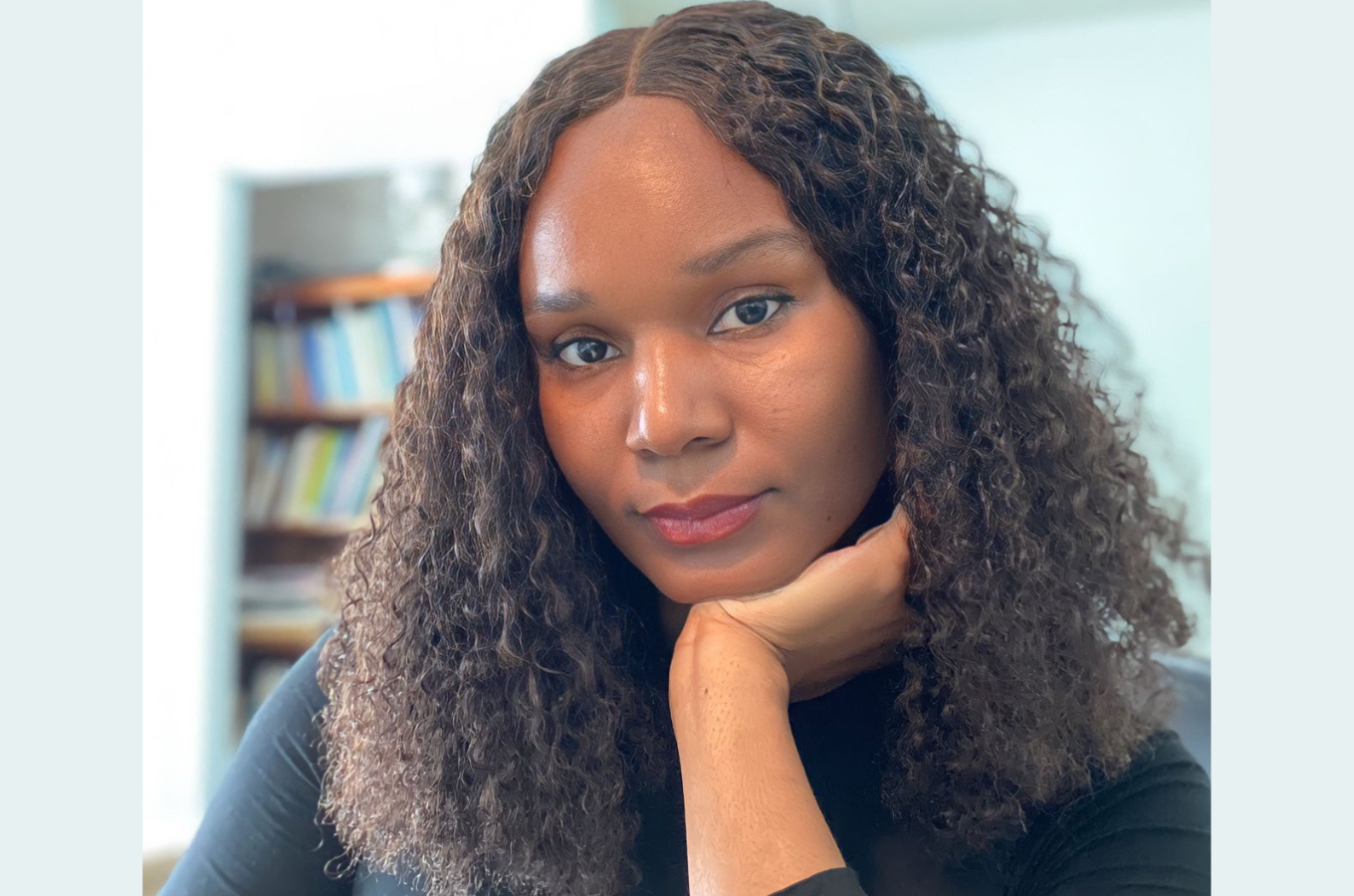
Nigerian author Ukamaka Olisakwe has successfully defended her PhD and we are proud of her for this key moment in her career and life!
Olisakwe was a doctoral candidate in the University of South Dakota’s Department of English, with a specialization in Literary Studies: Creative Writing. Her dissertation, titled The Things They Knew, is a work of historical fiction that spans over 120 years – from the 1890s to 2010s Nigeria. Her PhD committee included professors Leah McCormack (chair), Lee Ann Roripaugh, Benjamin Hagen, and Chika Unigwe.
The Things They Knew, while being a work of fiction, is hinged on historical facts; it traces the religious rivalry between Anglicans (led by the British) and Roman Catholics (led by the French and the Irish) that established the Igbo countryside as a battleground for this animosity between European missionaries.
Much has been written about how colonization reordered Nigeria’s cultural and political landscapes, and with this dissertation, Olisakwe further expands on the religious impact, focusing on the ways the southeastern region was deployed as a proxy in the European war of religion. This project also reimagines life in the 1890s and dwells on some of the revolutionary decisions the Igbo made while navigating colonization.
In her artist statement, Olisakwe writes that it demonstrates the “ways in which [the Igbo] put to action that old proverb that loosely translates to ‘when one thing stands, another stands beside it,’ because for the Igbo of that period, they accepted within themselves that something foreign had indeed taken up space on their land and they must make quick decisions about what to do with that intrusion, the concessions and compromises they could make to avoid wider conflicts, and the ways they could mold that intrusion to their own advantage.”
Olisakwe drew from the works of Nigerian, African, and African American scholars, who have interrogated colonialism, including religious colonialism. She also borrowed from oral histories passed down from the generations and analyzed reports (including photographs and anthropometric artifacts) collected by European anthropologists and missionaries who documented much about the “laws and customs” of the Igbo in the late nineteenth and early twentieth centuries.
Although Olisakwe’s defense was a closed event, it was an intimate and memorable affair! Her committee member Professor Chika Unigwe took screenshots of the moment Olisakwe broke into tears after the committee returned from deliberation and chanted “Congratulations, Dr. Olisakwe!”
Olisakwe shared with us that she cried a lot when she heard the congratulatory news and is extremely grateful for her PhD journey:
This journey was so fulfilling. I learned more about myself and my capabilities through it all. I am grateful for the rigor my studies demanded, the intensive research my professors encouraged, the resources my university sourced for me, including fetching materials from across the world just so that I would have everything I needed to produce this dissertation. Finally, I am glad that my project has added to the important work done by contemporary Igbo women, who continue to populate our archives with stories that contribute to communal and national change.
Ukamaka Olisakwe grew up in Nigeria and now lives in the United States. She is a UNESCO Africa39 honoree, a University of Iowa IWP fellow, a VCFA Emerging Writer Scholarship winner, a Morland Foundation Scholarship finalist, and a Gerald Kraak Prize runner-up. Her works have appeared in the New York Times, Granta, Guernica, Longreads, The Rumpus, Catapult, Google Arts & Culture, and elsewhere. She is the author of Ogadinma (2020), Don’t Answer When They Call Your Name (2023), and the founder/editor-in-chief of Isele Magazine. She is currently writing a TV series, Agoodjie, for Canal+ and StudioCanal, and also regularly speaks about postpartum bodies and interiorities at universities and conferences, the most recent being at Harvard and Emory.
Congrats to Olisakwe! See the photos from her PhD defense below.



***
Photo credits go to Chika Unigwe.









Elvis June 18, 2024 07:03
Please, Where can I find this dissertation if it’s in public domain? I did like to read it for personal education.